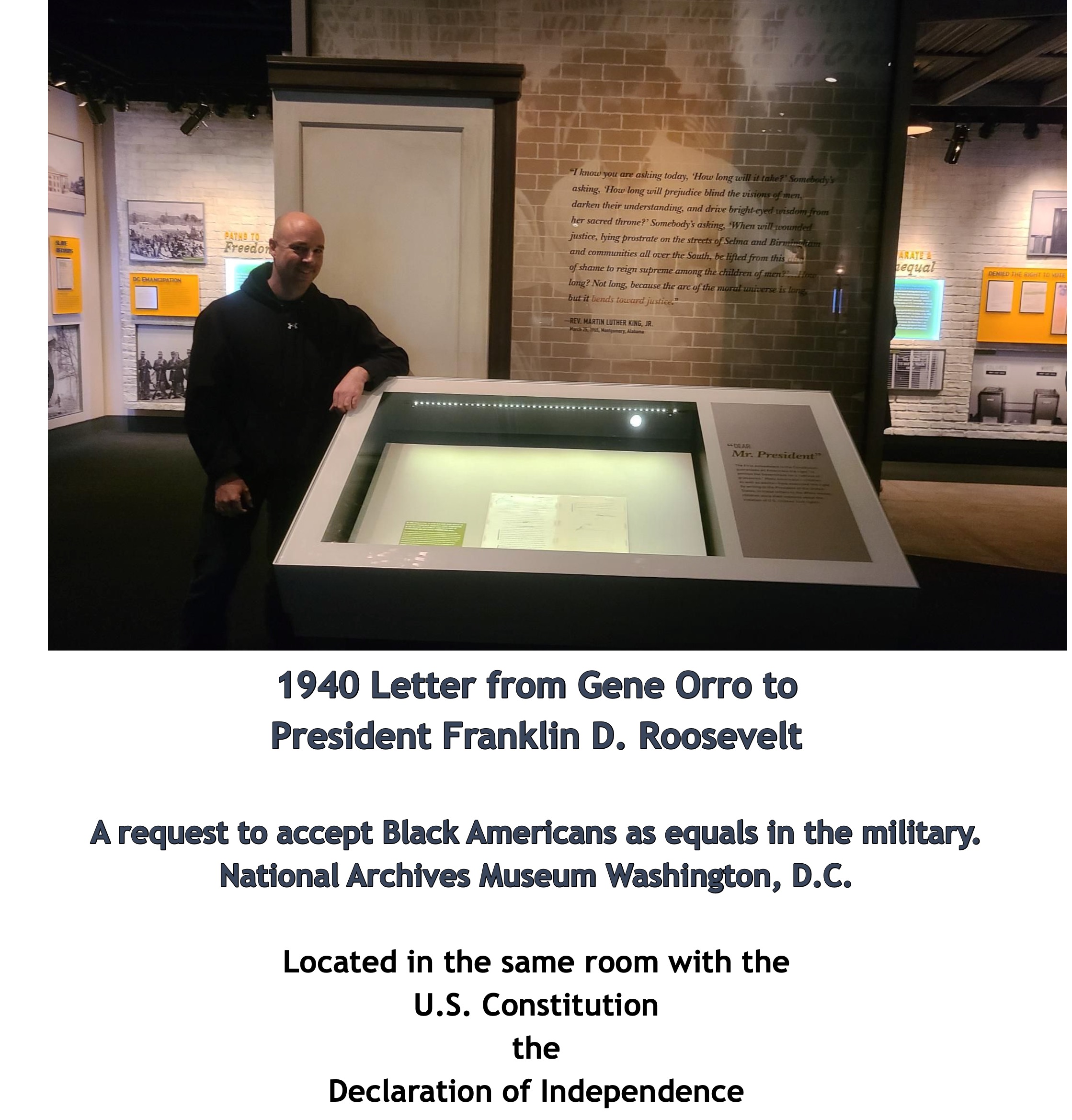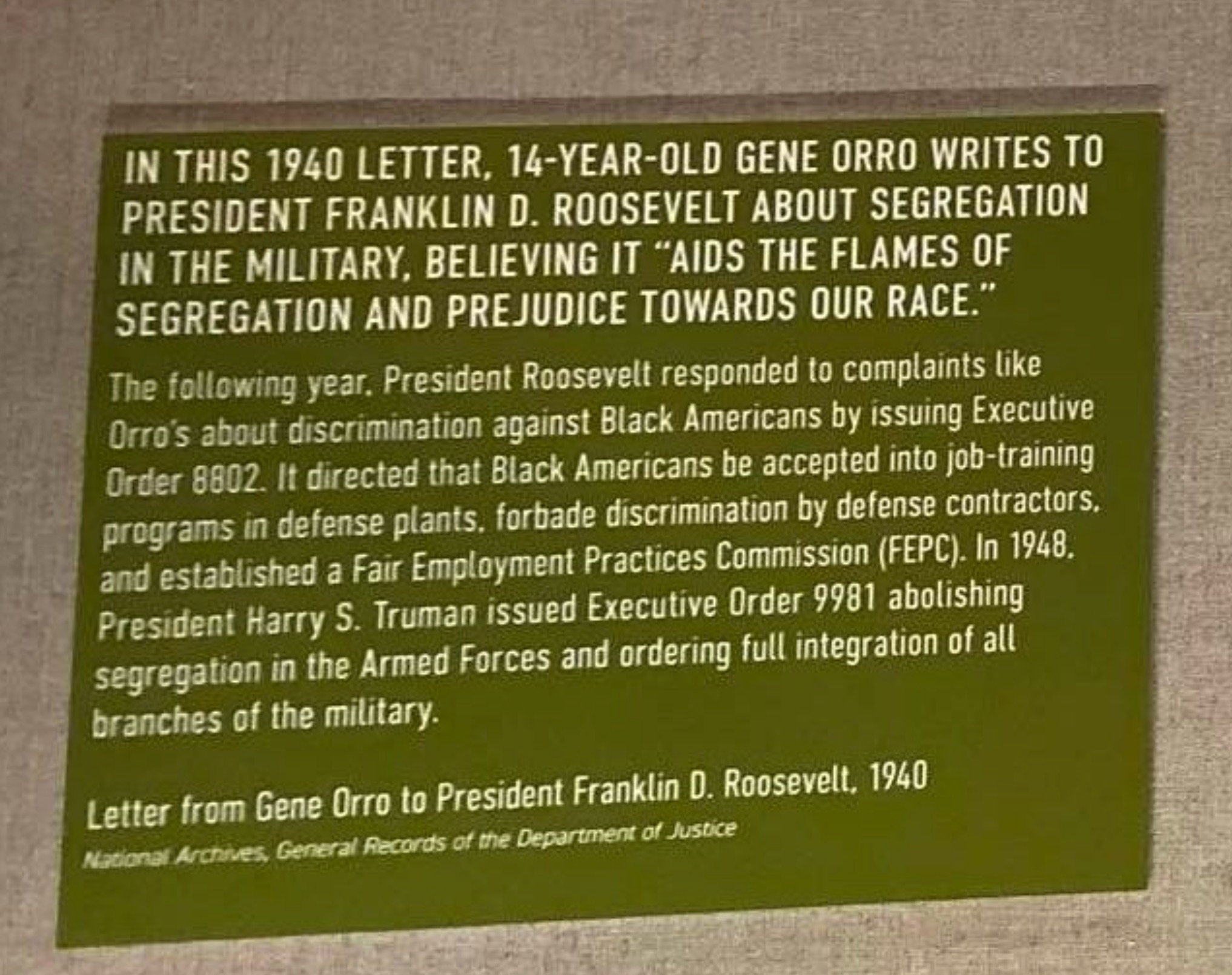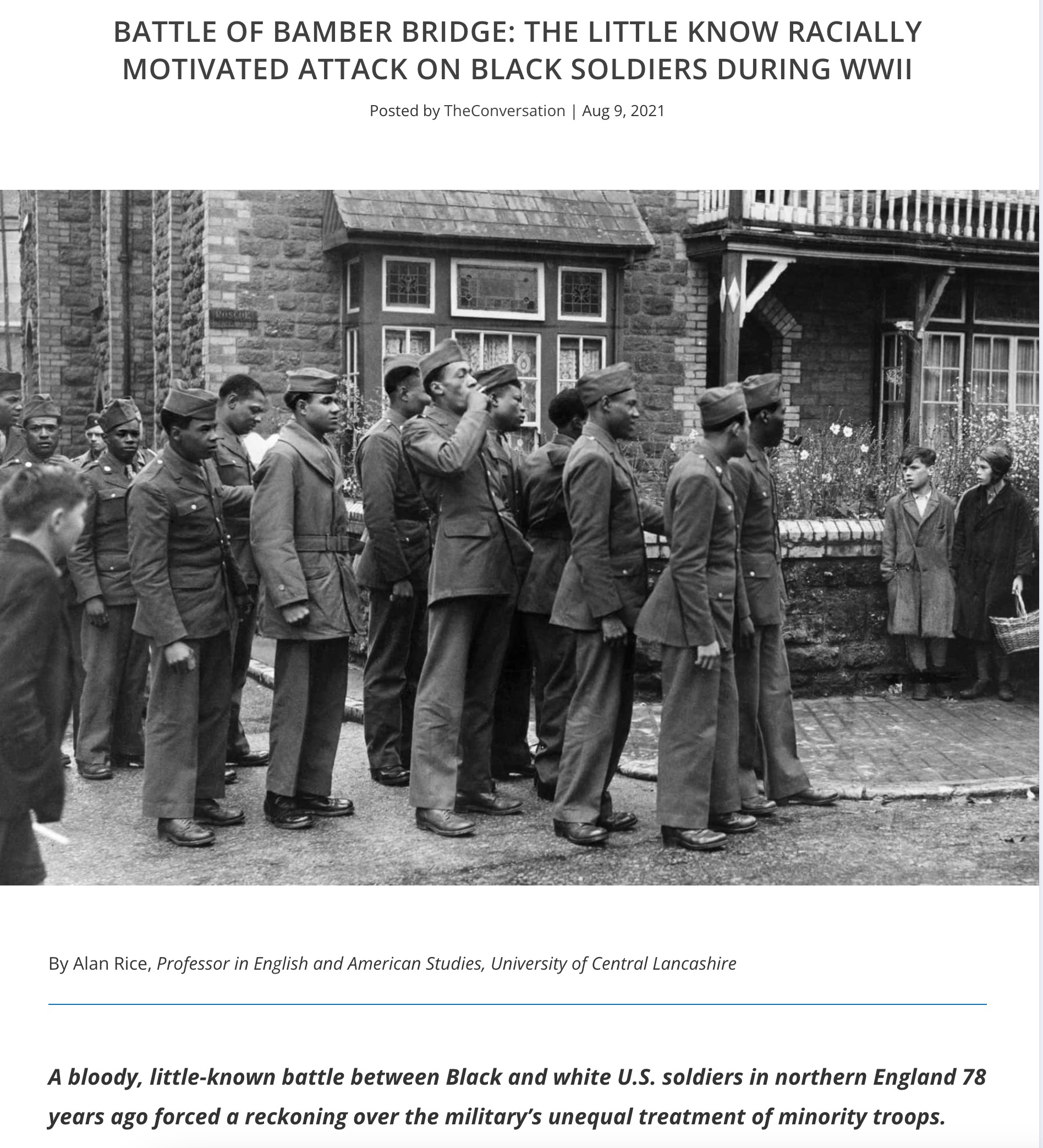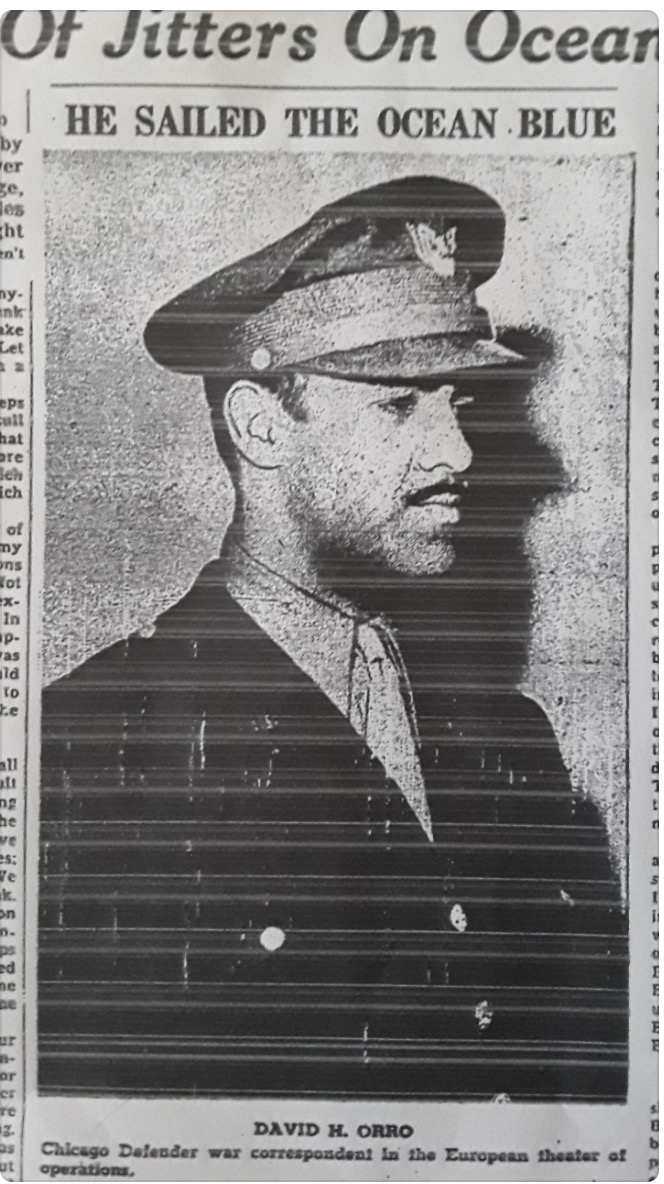David Orro, my grandfather was a war correspondent for the Chicago Defender stationed in England in the early forties. David covered a race riot between black and white American soldiers. During that period his son, Gene Orro at the age of fourteen petitioned President Roosevelt to end segregation and accept black men as equals in the military.
Above: Damon Orro, Gene’s son (my half-brother) who recently discovered our father’s letter.
AI Inquiry:
I have discovered new coverage of two race riots, during this time, in England between black and white American soldiers:
1. Battle of Bamber Bridge June 1943
There were several instances of racial tensions and conflicts involving American soldiers stationed in England during the 1940s. One notable example was the “Battle of Bamber Bridge” in 1943, which involved a racial clash between Black and white American soldiers. In general, there were tensions between American troops and the local British population, as well as within the American military itself, due to the presence of Jim Crow segregation laws and cultural prejudices that were prevalent in the United States at the time.
Can you find more information on the Battle of Bamber Island?
Here are some details about the Battle of Bamber Bridge: - The incident occurred on June 24-25, 1943, in the small village of Bamber Bridge, Lancashire, England, where American troops were stationed during World War II. - The conflict was between Black soldiers of the US Eighth Army Quartermaster Truck Company and White soldiers of the US Military Police Company. - The incident was sparked when White MPs tried to enforce racial segregation in a local pub, but the Black soldiers fought back with the support of British civilians. - The Battle of Bamber Bridge is considered a unique chapter of WWII history, as it highlighted the racial tensions and differences in attitudes between the US and Britain at the time. - The incident is also credited with sparking change in the US military and society, as it brought attention to the issue of racial segregation and discrimination.
Were there injuries and arrests reported?
Yes, there were injuries and arrests reported in the Battle of Bamber Bridge. According to one account, the violence resulted in one death and seven injuries (five soldiers and two MPs). Additionally, 32 Black soldiers were convicted of mutiny and related crimes in a court martial.
Did the Chicago Defender cover this incident and do you know the names of the reporters?
David Orro was my Grandfather
Yes, the Chicago Defender did cover the Battle of Bamber Bridge in 1943. It was one of the few African American newspapers that reported on the incident. In fact, the Defender covered the event in several articles, including one on September 25th and another on October 23rd, 1943. Additionally, there was some coverage of the incident in other media outlets, but it was limited. The Battle of Bamber Bridge was largely overshadowed by other events happening during the war, and many mainstream media outlets did not report on it extensively. However, the incident was significant in highlighting the racial tensions and discrimination faced by African American soldiers during World War II, and it helped to spark conversations about the need for change within the US military and society as a whole.
It looks like the Chicago Defender had two correspondents in the European Theater of Operations (ETO) during World War II, who may have reported on the Battle of Bamber Bridge: David H. Orro and Edward B. Toles. It’s worth noting that this incident was not widely reported in the mainstream media at the time, so information about it may be limited. However, some historians and researchers have since documented the event, including the installation of a plaque outside the Hob Inn in Bamber Bridge that outlines the community’s relationship with the soldiers, the violence, and its aftermath.
To learn more, here is detailed account of what happened:
NPR: Battle at Bamber Island
Andre James
January 18, 2025
About TOTA
TOTA.world provides cultural information and sharing across the world to help you explore your Family’s Cultural History and create deep connections with the lives and cultures of your ancestors.





